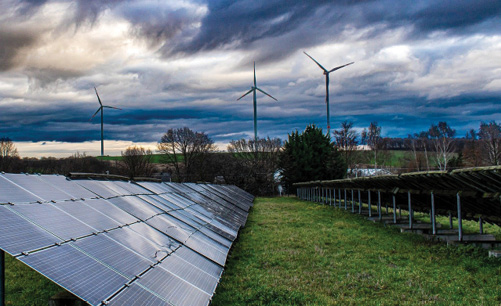
Holcim is working together with French engineering school INSA Lyon and French utility company ENGIE’s Corporate Research Center, ENGIE Lab CRIGEN, to develop a breakthrough energy storage technology that will serve as an alternative to batteries.
The solution is based on cement hydration, storing heat as energy and releasing it when needed in an infinitely repeatable cycle. This next-generation approach offers an alternative to conventional batteries that is local, safe, affordable and recyclable.
“The world needs innovative solutions to accelerate our shift towards renewable energy generation, distribution and storage – all areas in which Holcim can play a big part,” said Edelio Bermejo, head of global innovation at Holcim. “With this collaboration we are moving energy storage forward, opening up a new range of solutions based on materials that are local and recyclable.”
This innovation is based on leveraging the unique properties of a specific cementitious material that can absorb 300 kW of energy per cubic meter and release it later through hydration. It is designed to store the surplus energy that runs through a heating network and release it when needed through a hydration trigger. This cycle can be repeated infinitely. Holcim and its partners will investigate how to efficiently integrate this solution into a heating network as well as the broader energy infrastructure.
This innovative approach could help meet the demands of renewable energy storage while optimizing urban heating networks in line with Holcim’s vision to build greener cities. The company is putting its expertise to work in many ways to accelerate the world’s transition to renewable energy, from 3D printing of windmill towers all the way to enabling roads that recharge electric vehicles.
